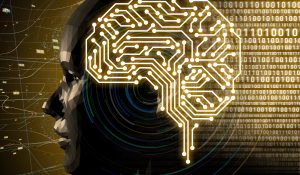
by T. N. Vijaykumar on Aug 13, 2018 | Tags: Conference
Here are some tips to be a good PC member.
Read more...

by Shyam Iyer on Aug 6, 2018 | Tags: Data center, Memory
Server architectures have largely been boring. Boring has been good. It has helped applications thrive in a stable H/W ecosystem and innovate at providing business logic. While performance improvements have largely been single thread performance improvements extended to data center class systems, we are beginning to see a new era in Server architecture designs driven by memory technologies, accelerators and fabrics like Gen-Z, CCIX and Open CAPI that glue them.
Keywords
X86, Memory centric architectures, Gen-Z, CCIX, Open CAPI
Read more...

by Keshav Pingali on Jul 26, 2018 | Tags: data-centric computing, functional languages, imperative languages, Parallelism
The term “von Neumann bottleneck” was coined by John Backus in his 1978 Turing Award lecture to refer to the bus connecting the CPU to the store in von Neumann architectures. In this lecture, he argued that the bus was a bottleneck because programs execute on the CPU...
Read more...

by Steve Swanson on Jul 19, 2018 | Tags: Memory, non-volatile, Persistent
Mainstream non-volatile main memory (NVMM) is just around the corner: Intel is opening up access to their 3DXpoint technology to a broader range of companies, and we are gradually learning more about the technology. Despite our growing understanding, the question of...
Read more...

by Martha Kim on Jul 16, 2018 | Tags: Benchmarks
Today streaming video accounts for over 70% of evening web traffic in the US. YouTube upload rates outpace not only CPU performance, but Moore’s Law itself, and reached 400 hours of video per minute in July 2015. In addition to sheer hours per minute, the videos...
Read more...

by Yuan Xie on Jul 12, 2018 | Tags: Accelerators, Emerging Technology, Machine Learning, Memory, Near Data Computing, Specialization
A previous blog titled “Blurring the lines between memory and compute” by R. Das was a nice summary of the history and the recent trends on addressing the memory wall challenges with process-in-memory (PIM) ideas. This blog would like to further highlight...
Read more...

by Daniel A. Jiménez, interim Chair of IEEE TCCA on Jul 9, 2018 | Tags: Conference
Peer-reviewed articles in top conferences are both the result and the driving force of computer architecture research. As our community expands and the number of submissions to top conferences continues to grow, it will be imperative to improve the review process....
Read more...

by Mark Silberstein, Oleksii Oleksenko, Christof Fetzer on Jul 2, 2018 | Tags: Security, software, speculative execution
Spectre and Meltdown opened the Pandora box of a new class of speculative execution attacks that defeat standard memory protection mechanisms. These attacks are not theoretical, they pose a real and immediate security threat, and have been reportedly exploited by...
Read more...

by Srilatha (Bobbie) Manne, Steve Reinhardt, Bryan Chin on Jun 25, 2018 | Tags: Advice, remote office, telecommuting, work/life balance
Telecommuting is becoming increasingly common. This is partly due to technological advances that make it more feasible, and economic and family dynamics that tie people down to a particular location. With the exception of big cities with tech hubs, accommodating dual...
Read more...

by Fred Chong on Jun 18, 2018 | Tags: Quantum Computing, Verification
Since my last post, quantum computing hardware continues to develop at an impressive pace, as seen with the recent announcement of Google’s 72-qubit machine (although no test data has been released yet). Pushing the limits of engineering and technology, these...
Read more...










